Development of reading comprehension through collaboration and dialogue
An intervention in the natural context of the classroom from the PASS Model
DOI:
https://doi.org/10.24310/isl.2.18.2023.17436Keywords:
reading comprehension, PASS, collaboration, mediation, qualitative research.Abstract
Deep and critical reading comprehension is a necessary instrument for the development of full citizenship. It is a complex process that involves different skills and processes, where teachers have to assume the role of mediators and facilitators, so that students are the protagonists of their own learning and understanding. For this reason, this qualitative, multiple-case study has two objectives: a) to understand the relationships between cognitive processes, skills and interaction processes between the different agents involved b) to know the interaction situations in the classroom that stimulate these processes, as well as as well as the role that teachers play in these situations. 115 boys and girls from 4th grade of Primary Education, 7 teachers, a counselor and the researcher herself participated in the study. The results show how there are different elements and processes involved that favor reading comprehension. Likewise, it is observed how the fact of favoring collaboration, argumentation, and autonomous decision-making promote a deep and critical understanding. For this task, teachers must question their own teaching practice and favor learning situations where the collaboration, dialogue and argumentation lead the dynamics.
Downloads
Metrics
Publication Facts
Reviewer profiles N/A
Author statements
- Academic society
- N/A
- Publisher
- EduVerso, Universidad de Málaga
References
Ainscow, M. (2012). Haciendo que las escuelas sean más inclusivas: lecciones a partir del análisis de la investigación internacional. Revista Educación Inclusiva, (5)1, 39-49.
Angrosino, M. (2012). Etnografía y observación participante en investigación cualitativa. Morata.
Ares Ferreirós, M., Alfonso Gil, S., y Deaño, M. (2021). Eficacia del programa de Facilitación de la Planificación para la prevención de dificultades de comprensión lectora. Investigaciones Sobre Lectura, (15), 46-63. https://doi.org/10.24310/isl.vi15.12561
Bang, D., y Frith, C. D. (2017). Making better decisions in groups. Royal Society Open Science, 4(8), 170193. https://doi.org/10.1098/rsos.170193
Blasco-Serrano, A. C., Arraiz Pérez, A., y Garrido Laparte, M. Á. (2019). Claves de la mediación para el desarrollo de la comprensión lectora: un estudio cualitativo en aulas de 4º de Educación Primaria. Revista española de orientación y psicopedagogía, 30(2), 9-27. https://doi.org/10.5944/reop.vol.30.num.2.2019
Boza, A., Salas, M., Ipland, J., Aguaded, M., Fondón, M., Monescillo, M., y Méndez, J. (2001). Ser profesor, ser tutor. Orientación Educativa para los Docentes. Hergué.
Broek, P., Kendeou, P., Lousberg, S., y Visser, G. (2017). Preparing for reading comprehension: Fostering text comprehension skills in preschool and early elementary school children. International Electronic Journal of Elementary Education, 4(1), 259-268.
Carcamo, B. (2023). Los roles del conocimiento del vocabulario y la conciencia metacognitiva como mediadores entre el conocimiento previo y la lectura académica en L2. International Journal of Applied Linguistics, 33, 2, 292–326. https://doi-org.cuarzo.unizar.es:9443/10.1111/ijal.12466
Clemente, M. (2014). La competencia de las competencias: el sentido de la lectura. Cuadernos de pedagogía, 447, 46-49.
Das, J.P. (2000). PREP. A cognitive remediation programme in theory and practice. Developmental Disabilities Bulletin, 28, 83-95.
Das, J.P. (2018). The PASS Theory of Intelligence: A Brain-Based Approach. Oxford Research Encyclopedia, Education. Oxford University Press USA.
Davis, A., Griffith, R., y Bauml, M. (2019). How preservice teachers use learner knowledge for planning and in-the-moment teaching decisions during guided reading. Journal of Early Childhood Teacher Education, 40(2), 138-158, https://doi.org/10.1080/10901027.2018.1534161
Denzin, N. K. (2018). The qualitative manifesto: A call to arms. Routledge.
Díaz-Iso, A., Velasco, E., y Meza, P. (2022). Intervenciones realizadas para mejorar la competencia lectora: una revisión sistemática. Revista de Educación, 398, 249–281. https://doi.org/10.4438/1988-592X-RE-2022-398-559
Dunn, K., Georgiou, G. K., y Das, J. P. (2018). The PASS to superior reading performance. High Ability Studies, 29(2), 135-148, https://doi.org/10.1080/13598139.2018.1507900
Duran, D., Ribosa, J., y Sánchez, G. (2020). Peer tutoring for improvement in rhythm reading fluency and comprehension. International Journal of Music Education, 38(2), 299–312. https://doi.org/10.1177/0255761419898313
Elboj, C., Pulido, M.Á., y Welikala, T. (2013). Las Tecnologías de la Información y la Comunicación en la salida del aislamiento rural. El caso de Ariño. Revista Electrónica de Geografía y Ciencias Sociales, 17.
Eleuterio, A. I. (2015). Plan de formación en comprensión lectora en el IES Américo Castro. Investigaciones sobre lectura, 3, 96-105.
Elleman, A. M., & Oslund, E. L. (2019). Reading comprehension research: Implications for practice and policy. Policy Insights from the Behavioral and Brain Sciences, 6(1), 3-11. https://doi.org/10.1177/2372732218816339
Escudero, J. M. (2005). Fracaso escolar, exclusión educativa: ¿De qué se excluye y cómo? Profesorado, revista de currículum y formación del profesorado, 1(1), 1-24.
Espárrago, A.J. (2021). Categories of Questions and Critical Thinking. Journal of Innovations in Teaching and Learning, 1(2), 107-116.
Flick, U. (2018). Designing qualitative research. Sage.
Freire, P. (1989). La educación como práctica de la libertad. Siglo XXI.
Georgiou, G.K., y Das, J.P. (2014). Reading comprehension in university students: relevance of PASS theory of intelligence. Journal of Research in Reading, 37 (S1), S101-S115. DOI: 10.1111/j.1467-9817.2012.01542.x.
Georgiou, G.K., Guo, K., Naveenkumar, N., Alves Vieira, A.P., y Das, J.P. (2020). PASS theory of intelligence and academic achievement: A meta-analytic review. Intelligence, 79, 101431. https://doi.org/10.1016/j.intell.2020.101431
Glaser, B., y Strauss, A. (1967). The discovery of grounded theory: strategies for qualitative research. Aldine Publishing Company (Cap. 5: 101-115).
Gómez, M. Á. (2016). El libro de texto escolar: Espacios, lectura, hábitos digitales y recepción. Profesorado, Revista de Currículum y Formación del Profesorado, 20(1), 32-47.
Gutiérrez-Braojos, C., y Salmerón, H. (2012). Estrategias de comprensión lectora: enseñanza y evaluación en educación primaria. Profesorado, Revista de currículum y formación del profesorado, 16(1), 183-202. http://recyt.fecyt.es/index.php/profesorado/article/view/42825/24718
Gutiérrez Fresneda, R. (2022). Influencia de las estrategias cognitivas de la lectura en la mejora de la capacidad de comprensión en estudiantes de Educación Primaria. Investigaciones Sobre Lectura, 2(17). https://doi.org/10.24310/isl.vi18.15140
Hammersley, M., y Atkinson, P (1994). Etnografía. Métodos de investigación. Paidós.
Hayward, D., Das, J. P., y Janzen, T. (2007). Innovative Programs for Improvement in Reading Through Cognitive Enhancement: A Remediation Study of Canadian First Nations Children. Journal of Learning Disabilities, 40 (5), 443-457.
Jiménez, J. E. (2019). Modelo de respuesta a la intervención. Pirámide.
Jiménez, E.P. Alarcón, R., y Vicente-Yague, M. I. (2019). Intervención lectora: correlación entre la inteligencia emocional y la competencia lectora en el alumnado de bachilleratoReading Intervention: Correlation Between Emotional Intelligence and Reading Competence in High School Students. Revista de Psicodidáctica, 24, 1, 24-30. https://doi.org/10.1016/j.psicod.2018.10.001
Jiménez Pérez, E.P. (2023): Critical Thinking VS Critical Competence: Critical Reading. Investigaciones Sobre Lectura, 18 (1), 1-26. https://doi.org/10.24310/isl.vi18.15839
Kintsch, W., y Van Dijk, A. (1978). Toward a Model of Text Comprehension and Production. Psychological Review, 85, 363-393.
León, J. A., Solari, M., y Olmos, R. (2011). La generación de inferencias dentro de un contexto social: un análisis de la comprensión lectora a través de protocolos verbales y una tarea de resumen oral. RIE. Revista de investigación educativa, 29 (1), 13-42.
Mahapatra, S. (2015). Cognitive Training and Reading Remediation. Journal of Education and Practice, 6, 9, 57-63. http://files.eric.ed.gov/fulltext/EJ1079538.pdf.
Mahapatra, S. (2016). Reading Disabilities and PASS Reading Enhancement Programme. Journal of Education and Practice, (7)5, 74-77, 145-149, recuperado de http://files.eric.ed.gov/fulltext/EJ1092363.pdf el 19 de agosto de 2016.
Mayoral-Rodríguez, S., Pérez-Álvarez, F., Timoneda-Gallart, C., y Muñoz-Cuatrecasas, A. (2020). The Adventures of Fundi Intervention Based on the Cognitive and Emotional Processing in Attention Deficit Hyperactive Disorder Patients. JoVE (Journal of Visualized Experiments), (160), e60187.
McCarthy, K. S., y Goldman, S. R. (2019). Constructing interpretive inferences about literary text: The role of domain-specific knowledge. Learning and Instruction, 60, 245-251, https://doi.org/10.1016/j.learninstruc.2017.12.004
Merriam, S. B., y Grenier, R. S. (Eds.). (2019). Qualitative research in practice: Examples for discussion and analysis. John Wiley & Sons.
Monge, C. (2009). Tutoría y orientación educativa. Wolters Kluwer.
Morin, E., Roger, E., y Domingo, R. (2002). Educar en la era planetaria. Universidad de Valladolid.
OECD (2019). PISA 2018 Results (Volume I): What Students Know and Can Do, PISA, OECD Publishing. https://doi.org/10.1787/5f07c754-en
Paris, S. G., y Paris, A. H. (2001). Classroom Applications of Research on Self-Regulated Learning, Educational Psychologist, (36)2, 89-101.
Perez-Alvarez, F., Timoneda-Gallart, C., y Mayoral-Rodríguez, S. (2019). Performance of 2146 children ages 5 to 15 with learning and behavioral dysfunction on the Das Naglieri Cognitive assessment system. Neuroquantology, 17(1), 59-71. Doi: 10.14704/nq.2019.17.01.1908
Ripoll, J. C., y Aguado, G. (2015). Enseñar a leer. Cómo hacer lectores competentes. EOS.
Roehling, J. V., Hebert, M., Nelson, J. R., y Bohaty, J. J. (2017). Text structure strategies for improving expository reading comprehension. The Reading Teacher, 71(1), 71-82, https://doi.org/10.1002/trtr.1590
Romero Claudio, C. y Jiménez Fernández, R. (2019): La formación inicial del máster de profesorado: reflexiones en torno a la implementación de una propuesta didáctica para una educación lecto-literaria. Investigaciones Sobre Lectura, 12, 1-18. https://doi.org/10.24310/revistaisl.vi12.11107
Sánchez, E. (2002). (3ª Ed.) Comprensión y redacción de textos. Edebé.
Sánchez, E., González, A. J., y García, R. (2002). Competencia retórica. Una propuesta para interpretar las dificultades de comprensión. Psicothema, 14(1), 77-85.
Sánchez Castro, S. y Pascual Sevillano, M.A. (2022). Eficacia de un juego serio digital para la mejora de la comprensión lectora y el rendimiento académico. Investigaciones Sobre Lectura, 17(1), 40-66. https://doi.org/10.24310/isl.vi17.14325
Sandoval-Muñoz, M. J., Mayorga-Muñoz, C. J., Elgueta-Sepúlveda, H. E., Soto-Higuera, A. I., Viveros-Lopomo, J., y Riquelme-Sandoval, S. V. (2018). Compromiso y motivación escolar: Una discusión conceptual. Revista Educación, 42(2), 66–79. https://doi.org/10.15517/revedu.v42i2.23471
Santos, M. A. (2000). La escuela que aprende. Morata.
Simons, H. (2011). El estudio de caso. Teoría y práctica. Morata.
Skinner, E., Furrer, C., Marchand, G., y Kindermann, T. (2008). Engagement and disaffection in the classroom: Part of a larger motivational dynamic? Journal of Educational Psychology, 100(4), 765
Solé, I. (2012). Competencia lectora y aprendizaje. Revista iberoamericana de educaçao, 59, 43-61.
Spradley, J. P. (1979). The ethnographic Interview. Holt, Rinehart and Winston.
Tavakoli, H., y Koosha, M. (2016). The effect of explicit metacognitive strategy instruction on reading comprehension and self-efficacy beliefs: The case of Iranian University EFL students. Porta Linguarum 25, 119-133.
Teng, F. (2016). Immediate and delayed effects of embedded metacognitive instruction on Chinese EFL students’ English writing and regulation of cognition, Thinking Skills and Creativity, 22, 289-302 https://doi.org/10.1016/j.tsc.2016.06.005
Vigo, B., Dieste, B., y Thurston, A. (2016). Aportaciones de un estudio etnográfico sobre la participación de las familias a la formación crítica del profesorado en una escuela inclusiva. Revista Electrónica Interuniversitaria de Formación del Profesorado, 19(1), 1-14.
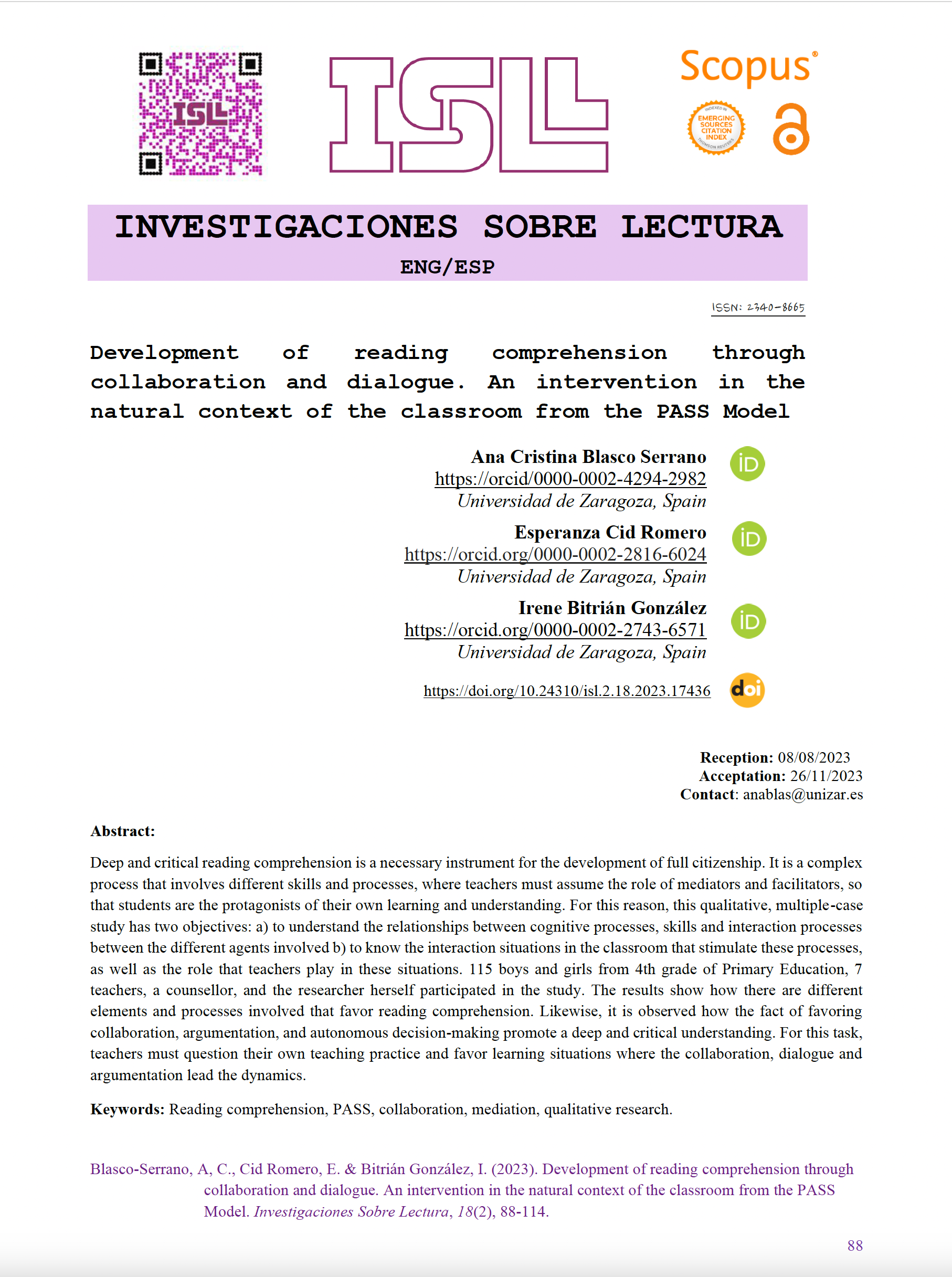
Downloads
Published
Versions
- 2024-01-02 (3)
- 2023-12-22 (2)
- 2023-12-22 (1)
How to Cite
Issue
Section
License
Copyright (c) 2023 Ana Cris Blasco-Serrano, Esperanza Cid Romero, Irene Bitrián

This work is licensed under a Creative Commons Attribution-NonCommercial-ShareAlike 4.0 International License.
All contents published in Investigaciones sobre la Lectura are protected under the Creative Commons Attribution-NonCommercial-ShareAlike 4.0 International (CC BY-NC-SA 4.0) license. All about this license is available in the following link: <http://creativecommons.org/licenses/by-nc-sa/4.0>
Users can copy, use, redistribute, share and exhibit publicly as long as:
- The original source and authorship of the material are cited (Journal, Publisher and URL of the work).
- It is not used for comercial purposes.
- The existence of the license and its especifications are mentioned.
There are two sets of authors’ rights: moral and property rights. Moral rights are perpetual prerogatives, unrenounceable, not-transferable, unalienable, imprescriptible and inembargable. According to authors’ rights legislation, Investigaciones sobre la Lectura recognizes and respects authors moral rights, as well as the ownership of property rights, which will be transferred to University of Malaga in open access. The property rights are referred to the benefits that are gained by the use or the dissemination of works. Investigaciones sobre la Lectura is published in an open access form and it is exclusively licenced by any means for doing or authorising distribution, dissemination, reproduction, , adaptation, translation or arrangement of works.
Authors are responsable for obtaining the necessary permission to use copyrighted images.






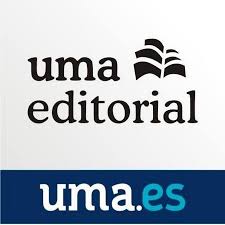
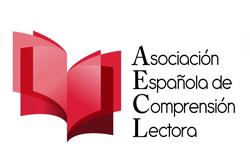
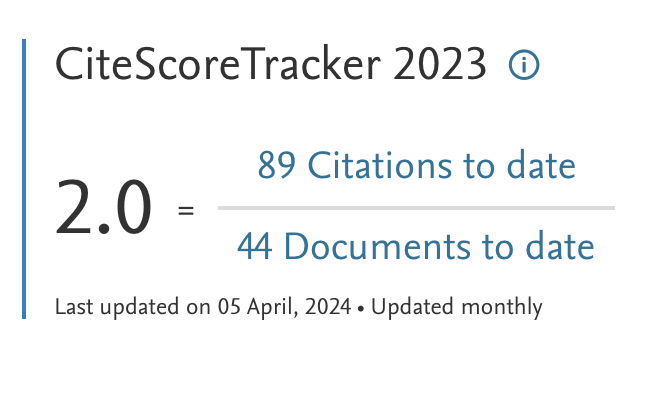
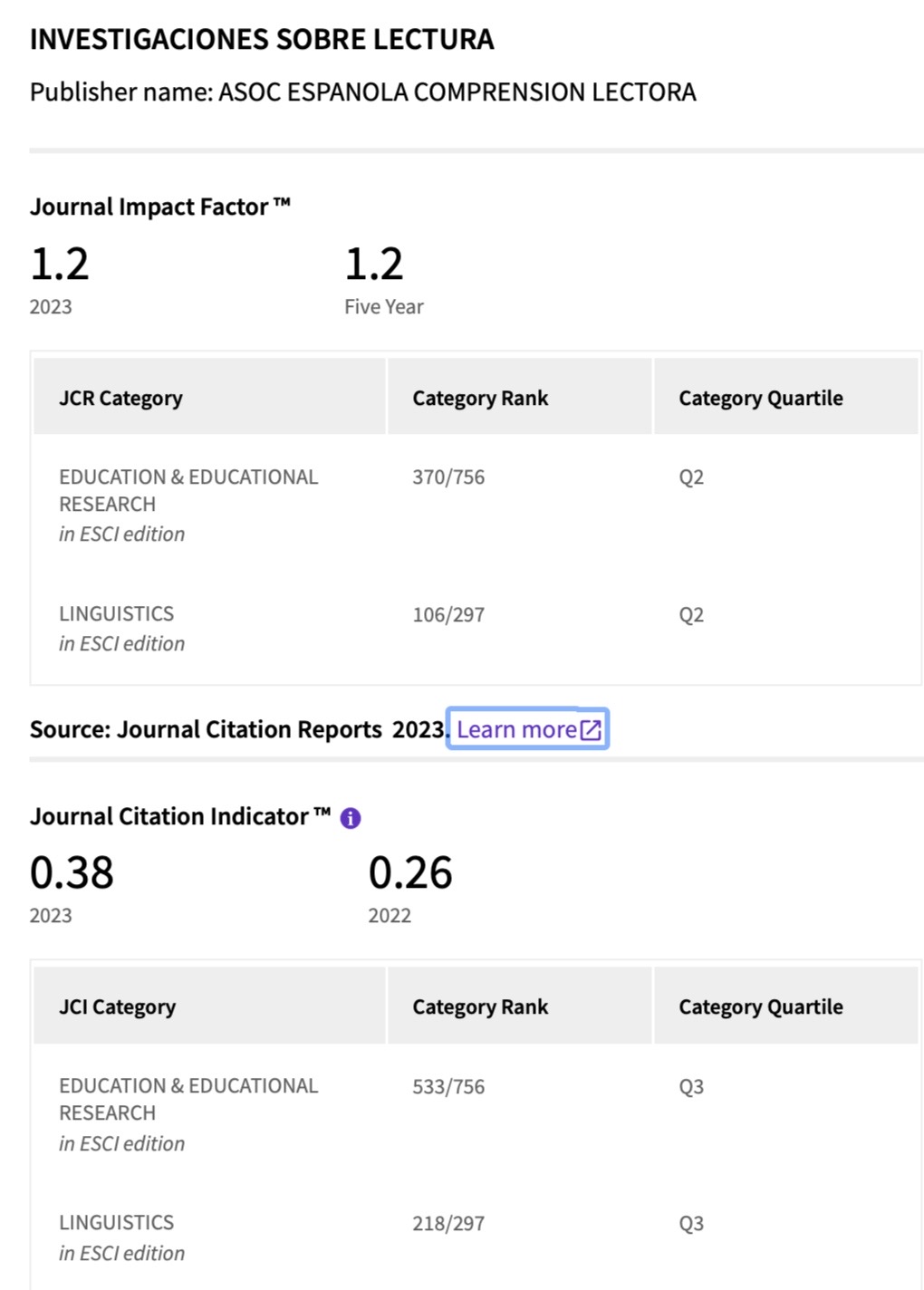
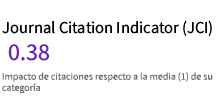

31.png)








